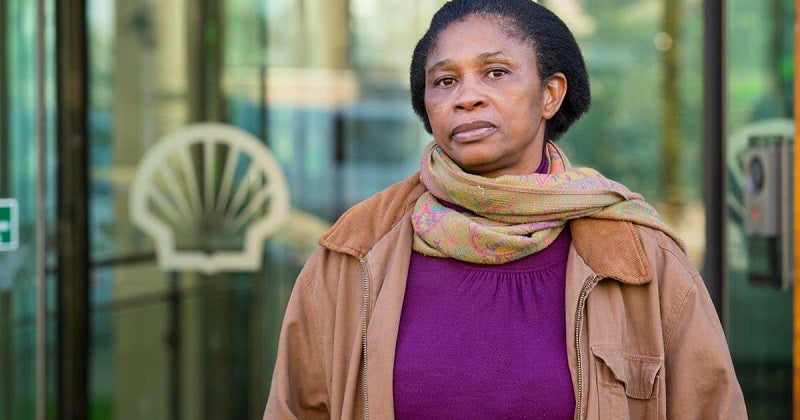
Judges in The Hague, Netherlands will begin hearing a case against Shell on Tuesday, with the oil company facing allegations of complicity in a number of human rights violations in Nigeria.
They will hear testimonies from four women of the Ogoni people, who hold Shell partly responsible for the execution of their husbands by the Nigerian military in 1995.
Nine men, including protest leader Ken Saro-Wiwa, were executed by the Nigerian military regime. The “Ogoni Nine” were outspoken critics of Shell’s operations in Ogoniland, a 1,000km2 kingdom in southern Nigeria, and the plaintiffs claim that Shell encouraged the Nigerian Government to unlawfully detain and execute these men.
Allegations against Shell
Lead plaintiff in the case Esther Kiobel said: “Over the years, Shell has continually fought to make sure this case is not heard in court. They have the resources to fight me instead of doing justice for my husband.”
Kiobel first filed a case against Shell in New York in 2002 but was ultimately unsuccessful, as the US Supreme Court ruled that the US did not have jurisdiction to hear the case in 2013.
Amnesty International business and human rights researcher Mark Dummett said: “This will be the first time, in a battle for justice spanning more than two decades, that Esther Kiobel and her fellow plaintiffs get the chance to tell their stories in court.
“These women believe that their husbands would still be alive today were it not for the brazen self-interest of Shell, which encouraged the Nigerian Government’s bloody crackdown on protesters even when it knew the human cost.
“Despite a cache of evidence against Shell, the company has managed to dodge justice for years and until now has never had to answer in court for these allegations. Tomorrow is an historic moment which has huge significance for people everywhere who have been harmed by the greed and recklessness of global corporations.”
Shell’s response
Shell has repeatedly protested its innocence in the case of the Ogoni Nine. In 2009, Shell paid a settlement of $15.5m to the Ogoni people as a “humanitarian” gesture.
Former Shell director Malcolm Brinded said at the time: “While we were prepared to go to court to clear our name, we believe the right way forward is to focus on the future for Ogoni people.”
In a statement on its website, the company said: “The 1995 executions of Ogoni leader Ken Saro-Wiwa and eight Ogonis by Nigeria’s military government attracted international condemnation. Although SPDC [Shell Petroleum Development Company of Nigeria] was not responsible for those tragic events, and SPDC – and Shell International in London – had attempted to persuade the government to grant clemency, the family of Ken Saro-Wiva and others brought a court case against Shell. The allegations being made are false and without merit.
“During the trial, Shell stated that the accused had a right to a fair legal process. After the trial verdict was announced, the then Chairman of Shell’s Committee of Managing Directors, Cor Herkstroter, sent a personal letter appealing to the Head of State to show clemency on humanitarian grounds to Ken Saro-Wiwa and his co-defendants.
“To our deep regret that appeal – and the appeals made by many others – went unheard. We were shocked and saddened by the news that the executions had been carried out.”
After these initial hearings, a judgement- either interim or final- will be made on 8 May 2019.



